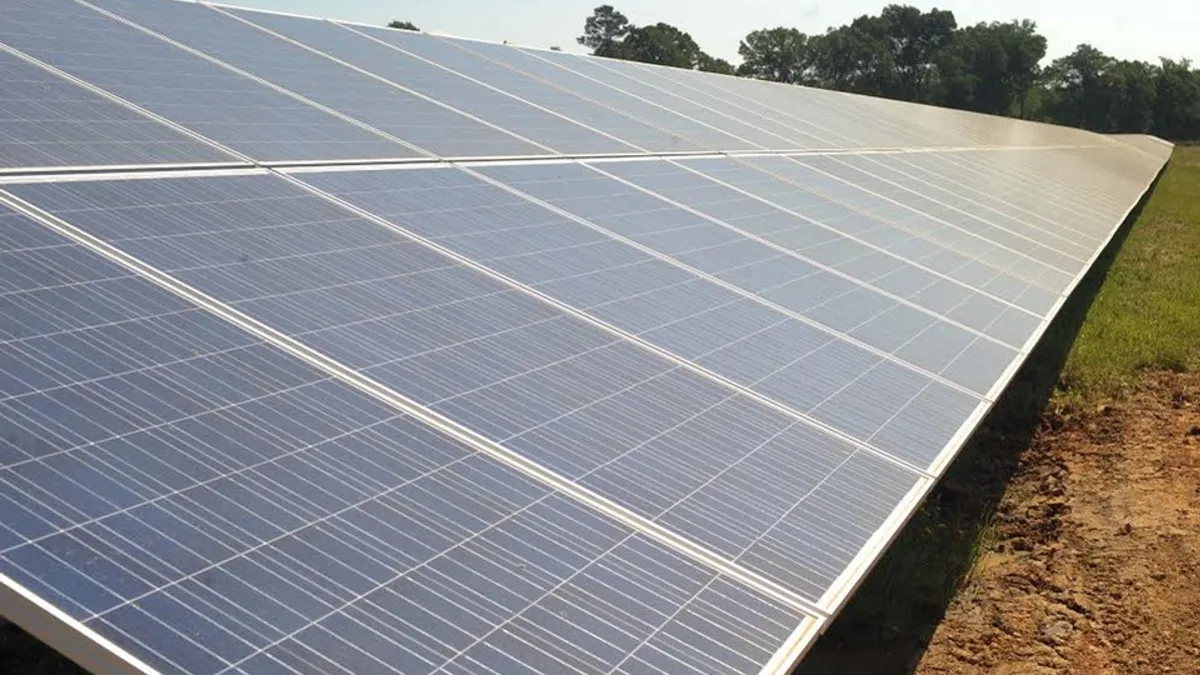Dive Brief:
- A Republican lawmaker in Georgia has introduced a bill that would restrict the state's utility regulators from making changes to energy resource decisions in the integrated resource plans filed by power companies every three years.
- House Bill 479, proposed by by Rep. Don Parsons (R), has alarmed solar advocates who say it will likely lead to less renewable energy on the system.
- Southern Environmental Law Center attorney Kurt Ebersbach warned stripping the commission's authority would have "disastrous consequences for customers." The state's growing solar resources have already saved customers $1 billion, he said.
Dive Insight:
When regulators approved Georgia Power's Integrated Resource Plan seven months ago, it included new renewables, distributed resources and allowed the utility to recover and capitalize costs related to investigating and potentially licensing new nuclear units.
The IRPs are finalized every three years, but if H.B. 479 were to become law the utility would have a lot less oversight. According to the bill text, "the commission shall not recommend or mandate any changes to an integrated resource plan relating to the sources of energy to be used by a utility for the generation of electricity."
Jason Rooks, government affairs director for the Georgia Solar Energy Industries Association, said in a statement that the progress the state has made on solar "is the result of a partnership between the PSC, Georgia Power, and the solar industry. If you take the Commission’s policy role out of the equation, we are probably going to see less solar in the future.”
SELC's Ebersbach said regulators' work to add low-cost solar resources "has already resulted in $1 billion in savings for Georgia Power customers – savings that wouldn’t have happened without a vigorous and engaged PSC.”
The bill was introduced last week and read a second time yesterday.
The largest chunk of Georgia Power's most recent IRP increases the utility's Renewable Energy Development Initiative (REDI) to procure 1,200 MW of renewables, including 150 MW of distributed generation and 1,050 MW of utility-scale resources. Wind can make up no more than 300 MW of those resources.
Along with the REDI resources, the commission also approved an additional 100 MW of distributed generation; Georgia Power will issue an RFP this year, with a commercial operations date in 2018 or 2019.















